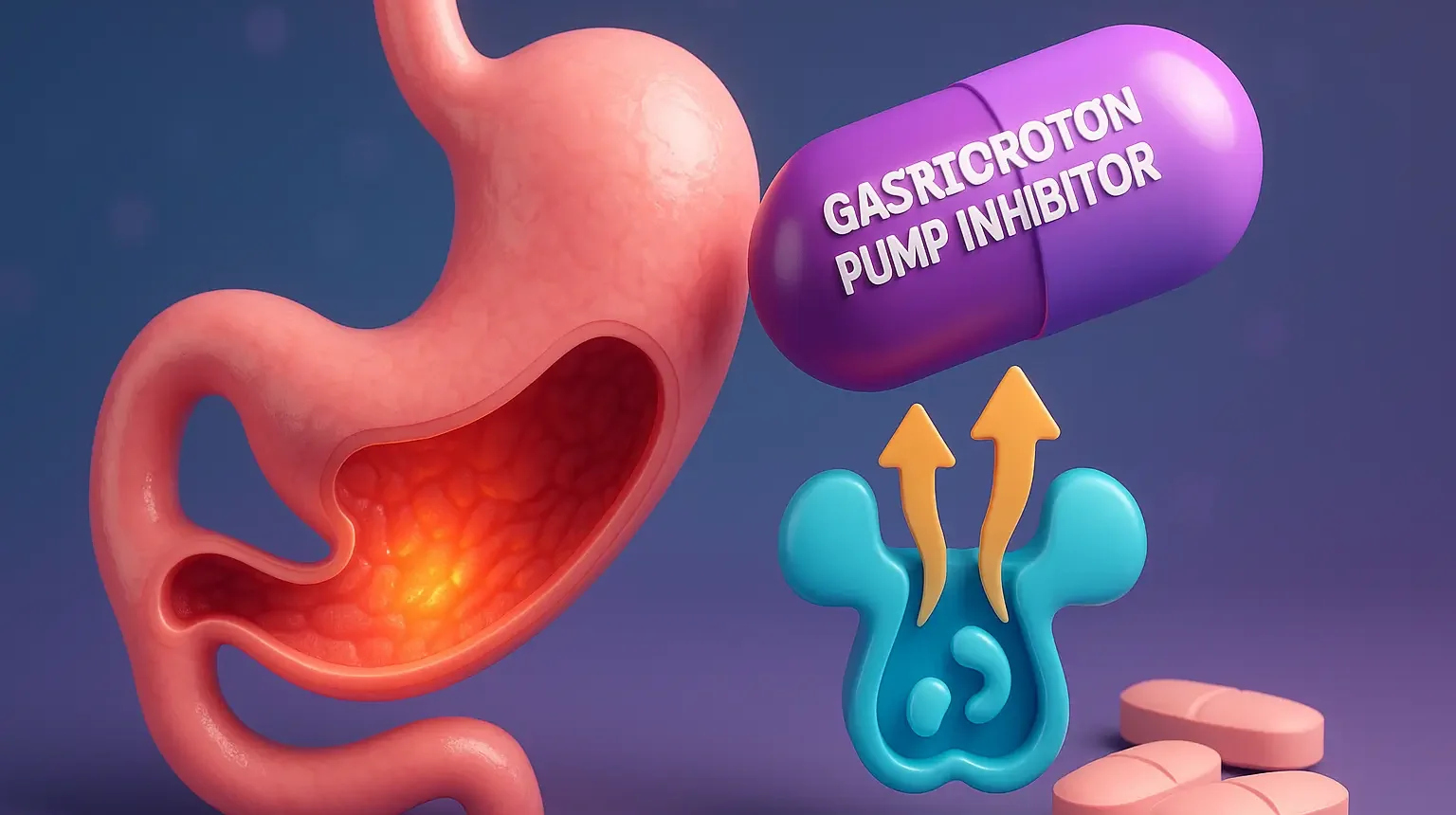Below we have described how Gastric proton pump inhibitor work to reduce stomach acid, treat ulcers, and manage acid reflux effectively.
Definition of Gastric proton pump inhibitor:
- Proton pump inhibitors (PPIs) are a class of drugs that rapidly and effectively reduce stomach acid production by irreversibly blocking the H⁺/K⁺-ATPase proton pump located on the parietal cells of the stomach.
Medical Uses of Gastric proton pump inhibitor:
- Gastroesophageal Reflux Disease (GERD)
- Peptic Ulcers (Gastric and Duodenal)
- Dyspepsia
- Prevention of Stress Ulcers in Critical Care
- Helicobacter pylori Eradication (in combination therapy)
- Zollinger-Ellison Syndrome
Side Effects:
- PPIs are generally well-tolerated, with a low incidence of temporary side effects, including:
- Nausea
- Vomiting
- Abdominal discomfort
- Flatulence
- Constipation
- Diarrhea
Advertisements
Mechanism of Action:
- Target Enzyme: PPIs target the H⁺/K⁺-ATPase enzyme (proton pump) located on the parietal cells of the stomach, which is responsible for secreting hydrochloric acid (HCl).
- Activation: PPIs are prodrugs that become activated in the acidic environment of the parietal cell canaliculi.
- Binding: The sulfonyl group of PPIs forms a covalent bond with cysteine residues on the H⁺/K⁺-ATPase enzyme.
- Inhibition: This irreversible binding inactivates the proton pump, effectively blocking the final step in gastric acid secretion.
- Result: With the proton pump inhibited, the secretion of H⁺ ions is halted, leading to a significant and sustained decrease in stomach acid production.

